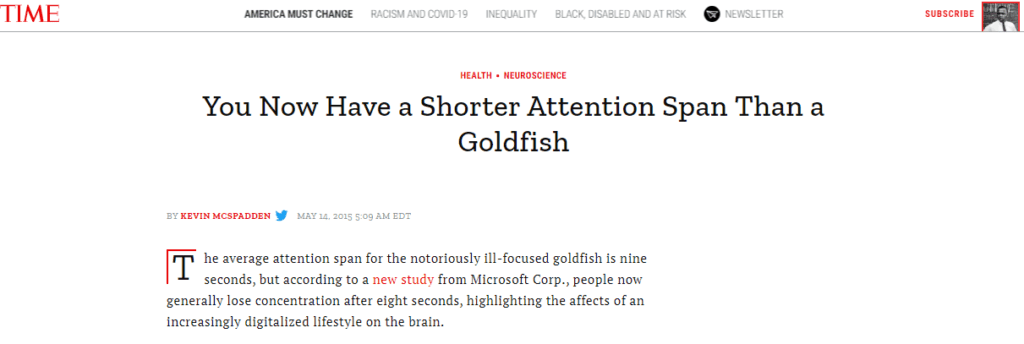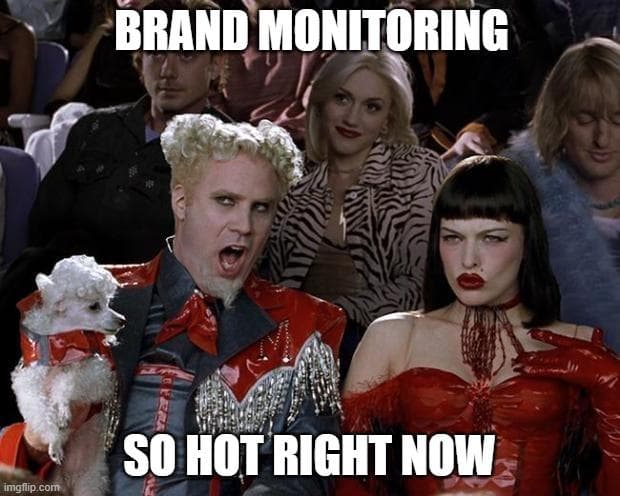Aug 3, 2020 | 7 minutes
Automation in the Era of the Short Attention Span
Do we really have a short attention span? How does technology affect it? Can automation help us focus on what really matters? Find the answers in this post.

“Focus on what really matters”.
If there is an overused phrase in the automation space, this has to be the one.
But why is it so popular among technology companies? The answer is simple: because this phrase speaks truth to one of the most controversial realities of our times -- the fight for our attention.
We live in an era where distraction and multitasking are rampant and our attention spans, the main victims.
It’s not a pretty picture, and most of us have to deal with these on a regular basis.
But why does this happen, and what role do technology and automation play in it?
In this article, I will shine a light on how our attention span works, and how technology affects it in different ways.
Feel the itch of checking your Twitter already? Hang on with me, and find out the reasons behind it.
It’s not a bug, it’s a feature
In recent times, several publications have claimed that our attention span has been reduced, and that certain technologies are to blame for this occurrence. Even though technology plays a role, this is not exactly true.
According to the authors of The Distracted Mind: Ancient Brains in a High-tech World, our brains have been wired for millennia to pick up information on a constant basis.
For the larger portion of our existence as a species, this was nothing but a feature that helped us survive in the wild.
It allowed us to pick up scents, changes in the air, or the subtle noise of dry leaves cracking a few meters behind our back.
Being able to switch our attention from one thing to another was certainly more helpful before than it is now.
Without nimble attention spans, it would have been harder for our ancestors to survive in an environment dotted with enemies, dangerous animals, and life-threatening natural phenomena.
As it turns out, focusing too much for too long translated into existential threat back in the day. Fast forward to today and that incredible survival feature has become a bug. Or, as The Distracted Mind authors call it, “a vulnerability”.
In other words, our attention spans remain more or less the same. It is the world around us that has changed entirely.
In parallel, we became very good at developing attention-grabbing technologies, such as:
Social media
Infinite scrolling
Notification systems
Mobile devices
Games
Entertainment content platforms
And before we knew it, we found ourselves striving for focus, constantly jumping between multiple tasks, and trying (unsuccessfully) to avoid the many sources of distraction that lie at our fingertips. As I said before, it’s not pretty. Permanent distractions and multitasking can have unkind effects on our minds, including:
Decreased productivity
Mental overload and burnout
Increased frustration
But is technology to blame? And most importantly: can automation help us gain our attention span back?
The cage fight for focus
Research in neuroscience is not yet definitive about the effects of technology in our attention span.
On one hand, collective attention on topics appears to be shorter than it was, although there is not enough research to back up similar claims for the individual attention span.
On the other hand, there is conclusive evidence of companies exploiting our “attentional processes” to keep us engaged in apps, sites, and platforms.
https://twitter.com/rzhongnotes/status/1290272854932627456
Of course, it can be tempting to jump to further deductions.
As you can imagine, a person holding a tech device that beeps and vibes every other minute will have a harder time focusing than someone who doesn’t. But formally speaking, assumptions are risky.
One thing, however, is certain: our attention spans are in dispute, and we shouldn’t be surprised about it.
As it shows on revenue and market capitalization figures of the following industries, our attention is worth trillions of dollars:
Gaming (159 billion dollars)
Film (101 billion)
Social media (current market cap for Twitter, Facebook, LinkedIn, Snapchat, and TikTok - combined - is around 750 billion)
Instant messaging platforms (around 100 billion, combined)
Mobile devices (2+ trillion, combined)
Granted, not every technology and company out there is designed to tap into our attention on a nearly constant basis -- although some very high-profile ones are. How to identify these technologies without naming names? My rule of thumb to spot attention grabbers is rudimentary but effective at the same time. In my experience, these products:
Are mobile-first (and in cases, mobile-only)
Send many notifications by default, for a number of different events, on a frequent basis
Stay in touch with the user via different channels (push notifications, email, texts, etc.)
Reward engagement via instant gratification mechanisms
Offers a frictionless online experience
Provides endless, or nearly-endless content
Assuming that these traits are there, you’ll probably get distracted by using the product (I know I do).
However, not all technologies are designed to profit from our biologically-anchored need for more information. Even among those products that tap into the weak spots, you will find nuances and configuration options that can help cut down the influence on our attention processes.
What’s most, a number of products want you to not pay attention, whether as a direct result of your interaction with them or as an indirect one. Automation software belongs to the latter category.
More room for your mind
The first thing to know when it comes to our attention span is that it’s not all black and white out there. Solutions that are peddled as simple or straightforward (i.e. “Delete the app”) aren’t particularly useful for a number of reasons, such as:
Despite the disadvantages, many attention-grabbing products provide, at the same time, immense value
Work-wise, we are bound to use several apps. In many cases, choice is limited or non-existent
Our lack of attention may not be related to a product, but to other factors, including biological, environmental, or personal ones
This said, there is room for improvement, and here’s where automation can help, along with other well-known, non-technological techniques. To make my point, I’ll provide an example of how I used Make to automate a task that constantly challenged my attention span towards the non-essential.
Take a look!
As a Content Strategist, I'm often involved in brand monitoring tasks. As the name indicates, the task involves monitoring websites and social media platforms, with the goal of finding mentions of a brand or product for further analysis and/or engagement.
One of the most important platforms where you can monitor brand mentions is Reddit. As a result, I used to spend a few hours every week looking for brand mentions.
However, there’s a catch: Reddit features tons of interesting, eye-grabbing content, which distracted me from my final goal more often than I would like to admit.
So, after a few weeks of finding myself wandering around posts that had nothing to do with brand monitoring, I took a shot at automating the task -- and succeeded. I was able to automate brand monitoring on Reddit, which translated into the following:
I don’t spend time anymore on completing the task. Make does it for me and notifies me via email / Slack whenever a mention is found
Reddit is no longer a source of distraction at work
I can focus on other tasks
Moreover, I was able to get rid of FOMO (fear of missing out), positively knowing that Make is performing that task for me in an efficient manner.
This is just a small sample of what automation can do for your attention span. It’ll give you more room, and while it’ll be up to you to decide what to do with it, you will likely enjoy your new-found freedom.
Conclusion: Three different approaches to improve your attention span
Summarizing, there are three courses of action you can take to improve your attention span:
Delete the apps that distract you
Block the apps and websites that distract you, using tools like Freedom
Automate tasks that are repetitive, boring, or distracting, using tools like Make
Like many other professionals out there - particularly, those in the fields of marketing, IT, business development, and e-commerce - the first two options aren’t viable for me.
I can’t just delete my social media accounts, because more often than not, they double down as work tools (however, I did delete my gaming accounts a couple of years ago).
In addition, blocking apps might sound like a plausible solution, but you never know when you will need to check something on any given blocked app. This fix will likely produce a new type of anxiety in me, and I’m not sold on that yet.
The third option is automation, which I’ve been steadily implementing for a year. In the beginning, the results were modest, but as I started to automate more and more often, the change became more noticeable.
These days, automation saves me around 6 hours each week - that’s a whole day per month. Not too shabby! And the best part is that I hardly had to modify my habits. I didn’t have to go cold turkey on social media in order to gain a few extra hours every week.
Needless to say, I can’t tell you what to automate, but you can start by asking yourself:
What do I need to focus on?
How much extra time do I need?
Once you answer these, it will be much easier to identify the repetitive and distracting and start working towards its automation. The biggest perk is that, once you start automating those, you will be able to focus on what really matters.
Or not.
But the extra time will be yours to have.
Happy automating!
This article has been updated with new information on August 11, 2020.




